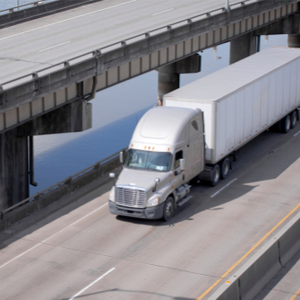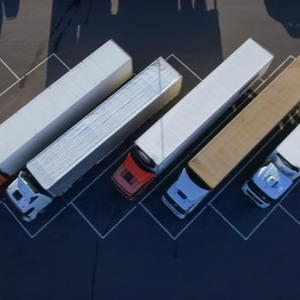
Tax preparation is an essential part of every truck driver’s career, whether they’re an independent owner-operator, a leased driver, or a company employee. However, for truck drivers, the process can be more complex compared to other industries. With the nature of their work requiring them to travel across state lines, manage their own expenses, and sometimes operate multiple vehicles, it’s easy to see why staying on top of taxes is critical.
One of the primary reasons tax prep is so crucial for truck drivers is the unique set of rules and requirements they face. From understanding the Heavy Vehicle Use Tax (Form 2290) to handling self-employment taxes, there are many nuances that drivers need to consider when it comes time to file. Unlike other professions, truck drivers often have the ability to claim several deductions that can significantly lower their tax burden, such as per diem allowances, fuel costs, truck maintenance, and insurance premiums. However, to maximize these deductions and avoid costly mistakes, accurate record-keeping and understanding the tax rules are essential.
Another factor that makes tax preparation so important for truck drivers is the timing. Failing to file or pay taxes on time can result in penalties, interest, and even an audit. Given the busy nature of a truck driver’s job, it’s easy to overlook tax deadlines, especially when balancing long hauls and tight schedules. By being prepared and organized year-round, drivers can ensure they avoid last-minute stress and financial consequences.
Ultimately, proper tax preparation not only helps truck drivers remain compliant with IRS regulations but also ensures that they are paying the correct amount of tax and claiming every deduction they are entitled to. Whether it’s through e-filing, hiring a tax professional, or utilizing tools designed specifically for truckers, being proactive with tax preparation can make a world of difference in both time saved and money earned.
Know Your Tax Obligations
When it comes to tax preparation for truck drivers, understanding your specific tax responsibilities is the foundation for staying compliant and avoiding penalties. Unlike traditional employees, truck drivers—especially owner-operators and independent contractors—have a unique tax profile that includes several federal and state-level obligations. Here’s what you need to know:
Form 2290 (Heavy Vehicle Use Tax)
What it is: Form 2290 is the IRS form used to report and pay the Heavy Vehicle Use Tax (HVUT) for any highway motor vehicle with a taxable gross weight of 55,000 pounds or more. This tax is used to help fund highway maintenance and infrastructure across the U.S.
Who needs to file: If you own or operate a heavy vehicle that is registered (or required to be registered) in your name and is used on public highways, you must file Form 2290. This applies to owner-operators, fleets, leasing companies, and even tax professionals filing on behalf of clients.
Filing threshold: The HVUT applies only to vehicles with a gross weight of 55,000 pounds or more. Vehicles used for less than 5,000 miles (or 7,500 for agricultural use) annually are exempt from the tax, but you must still file the form and claim suspension.
Due date: The HVUT tax year runs from July 1 to June 30, with the filing deadline falling on August 31 each year for vehicles in service during July. If a vehicle is first used later in the year, you must file by the last day of the month following the month of first use.
Self-Employment Tax
Who it applies to: If you’re an owner-operator or independent contractor, you’re considered self-employed. That means you’re responsible for paying both the employer and employee portions of Social Security and Medicare taxes—known as the self-employment tax.
Key points:
- The current self-employment tax rate is 15.3% (12.4% for Social Security, 2.9% for Medicare).
- This tax is filed using Schedule SE along with your annual income tax return.
- Many truckers overlook this portion of their tax obligation, leading to surprises during tax season.
Quarterly Estimated Taxes
Why they matter: Unlike regular employees who have taxes withheld from their paychecks, self-employed truck drivers are required to estimate and pay taxes quarterly throughout the year.
When to pay: Quarterly tax payments are due by:
- April 15
- June 15
- September 15
- January 15 (of the following year)
How to pay: You can use IRS Form 1040-ES or pay electronically through the IRS Direct Pay system or EFTPS (Electronic Federal Tax Payment System).
Tip: If you fail to pay enough through estimated taxes, you could face underpayment penalties—even if you pay your full tax bill by the end of the year.
State Income Taxes
Varies by state: Not all states have the same tax rules. Some states like Texas, Florida, and Nevada have no state income tax, while others like California and New York have higher tax burdens and more complex rules.
Important to know:
- You are typically taxed based on your state of residence, not where you drive.
- Some states may also require additional business or transportation-related filings.
Tip: Always check your home state’s tax requirements, and consider working with a tax preparer familiar with trucking industry regulations in your state.
Having a clear understanding of these obligations can help truck drivers avoid costly mistakes and better plan for tax season. In the next section, we’ll go over the documents you’ll need to gather to make filing as smooth as possible.
Gather Essential Documents
Proper documentation is the backbone of accurate tax preparation for truck drivers. Whether you’re working with a tax professional or filing yourself, gathering these essential documents ahead of time can make the filing process smoother and stress-free.
Income Records
Income documentation is the starting point for your tax return. It tells the IRS how much money you earned during the tax year and is used to calculate your overall tax liability.
- 1099 Forms: If you’re an independent contractor or leased owner-operator, you’ll likely receive a Form 1099-NEC from every company you worked with. These forms report your non-employee compensation and must be included in your tax return.
- Settlement Statements: These are detailed breakdowns of what you were paid and what expenses were deducted by the carrier or leasing company. Settlement statements help verify your actual take-home income and can support additional deductions not included on your 1099.
- Pay Stubs: If you’re a company driver, your employer will provide regular pay stubs showing gross income, taxes withheld, and benefits. These are essential for verifying W-2 income.
Expense Receipts and Logs
One of the biggest advantages truck drivers have during tax time is the ability to deduct a wide range of business-related expenses. To claim these deductions, you need to maintain accurate records.
- Fuel Receipts: Save all fuel receipts or use your fuel card summaries to track how much you spend on fuel.
- Repair and Maintenance Logs: Keep receipts for oil changes, tires, part replacements, and regular service. These costs are deductible business expenses.
- Lodging and Meals: While you’re on the road, hotel stays and meals can add up. You may be eligible for per diem deductions, but keeping receipts or a log of expenses helps support your claim.
- Tolls and Parking Fees: Frequent highway and city driving often means tolls and parking fees—every dollar counts, so keep those receipts.
- Other Miscellaneous Expenses: These may include GPS units, uniforms, safety gear, load locks, CB radios, and more.
Pro Tip: Use a mobile app or spreadsheet to log expenses daily. This cuts down time during tax season and ensures you don’t miss any deductions.
Mileage Logs
If you use the standard mileage deduction or want to back up business use of your vehicle, mileage logs are a must.
- Record daily, weekly, or monthly miles driven.
- Note the date, destination, purpose, and total miles per trip.
- Apps like MileIQ or a physical mileage logbook can help you stay organized.
The IRS requires that mileage deductions be substantiated with contemporaneous records, meaning logs should be recorded at or near the time of driving—not recreated later.
Vehicle Information
Whether you’re filing Form 2290 or claiming vehicle-related deductions, accurate vehicle data is required.
- Vehicle Identification Number (VIN): Needed for Form 2290 and VIN-specific deductions or corrections.
- Gross Vehicle Weight (GVW): Determines your HVUT liability—make sure you’re reporting the correct weight category.
- Date First Used: Essential for calculating partial-year HVUT payments if your vehicle went into service after July.
- Odometer Readings (if applicable): May help support mileage-related deductions or business use percentage.
Previous Year’s Tax Returns
Keeping your last year’s return handy helps with:
- Comparing income trends or expenses.
- Copying over EINs, VINs, or business info to ensure consistency.
- Identifying any carryover deductions or depreciation.
- Avoiding errors that could trigger a mismatch flag with the IRS.
Having your previous returns available is especially helpful if you’re using tax software or working with a preparer who needs a baseline.
By collecting and organizing these documents early, you reduce the risk of filing delays, missed deductions, or rejections. In the next section, we’ll take a deeper look at the most common tax deductions truck drivers can take advantage of.
Avoid Common Filing Mistakes
Even the most experienced truck drivers can run into trouble during tax season if they’re not careful. Filing mistakes not only delay your return and any expected refunds but can also result in penalties, audits, or rejected filings. Here are some of the most common errors truck drivers make—and how to avoid them.
1. Using the Wrong VIN (Vehicle Identification Number)
The VIN is a 17-character code that uniquely identifies your truck, and it’s required for filing Form 2290 and claiming vehicle-related deductions. Even a single digit out of place can lead to a rejected return or an invalid Schedule 1, which you need for vehicle registration.
How to avoid it:
- Double-check the VIN from your truck’s title, registration, or door placard.
- Use ExpressTruckTax’s free VIN checker tool before filing.
- If you make an error, ExpressTruckTax allows free VIN corrections if the original return was filed through their system.
2. Forgetting to Claim Eligible Deductions
One of the biggest money-losers for truck drivers is not taking advantage of all the business expenses they’re legally allowed to deduct. Every missed deduction is money left on the table.
Commonly missed deductions include:
- Per diem for meals and lodging.
- Truck maintenance and supplies.
- Licensing and regulatory fees.
- Insurance premiums.
- Load/unload assistance (lumper fees).
- Tools, GPS, and CB radio equipment.
How to avoid it:
- Keep detailed receipts and logs throughout the year.
- Use expense tracking apps designed for truckers.
- Work with a tax professional who specializes in transportation industry returns.
3. Missing Deadlines (Especially for Form 2290)
Truck drivers operate on tight schedules, and it’s easy to lose track of tax deadlines. But missing deadlines—especially for Form 2290—can result in penalties, interest, and even trouble with renewing vehicle registration.
Important deadlines to remember:
- Form 2290: Due August 31 for vehicles used in July.
- Quarterly estimated taxes: Due April 15, June 15, September 15, and January 15.
- Annual income tax returns: Typically due April 15 (or next business day if it falls on a weekend/holiday).
How to avoid it:
- Set calendar reminders or use tax software with automatic alerts.
- File early, especially during the 2290 season.
- Use ExpressTruckTax’s mobile app or dashboard to track deadlines and receive instant filing notifications.
4. Incorrect Mileage Reporting
Mileage plays a critical role in determining tax liability and eligible deductions. Reporting inaccurate mileage—whether overstated or understated—can raise red flags with the IRS and affect your tax return accuracy.
Where mileage matters:
- Proving suspension of HVUT (vehicles under 5,000 miles).
- Supporting per diem eligibility.
- Claiming standard mileage deductions (if not using actual expenses).
How to avoid it:
- Maintain an up-to-date mileage log with date, trip purpose, and odometer readings.
- Use electronic logging devices (ELDs) or mobile mileage tracking apps for accuracy.
- Review your logs monthly to catch discrepancies early.
5. Filing Under the Wrong Business Structure or EIN
Your tax treatment and reporting obligations depend heavily on your business structure—whether you’re a sole proprietor, LLC, S-corp, or partnership. Filing under the wrong entity type or using the wrong Employer Identification Number (EIN) can lead to processing delays and IRS notices.
Common issues include:
- Using your Social Security Number (SSN) instead of your registered EIN.
- Mismatching business names and EINs.
- Filing a return as a sole proprietor when your business is officially an LLC or corporation.
How to avoid it:
- Keep a copy of your EIN letter from the IRS and verify all business info before filing.
- Consult with a tax professional if you’ve recently changed your business structure.
- Use ExpressTruckTax’s Ready Return feature to auto-fill business info from past returns and reduce errors.
Mistakes can happen, but the best defense is organization and early preparation. Use ExpressTruckTax to file accurately, stay compliant, and access helpful features like free error checks, automatic deadline reminders, and expert support.






